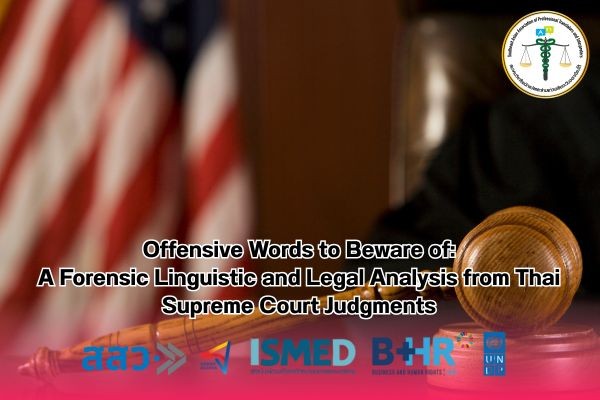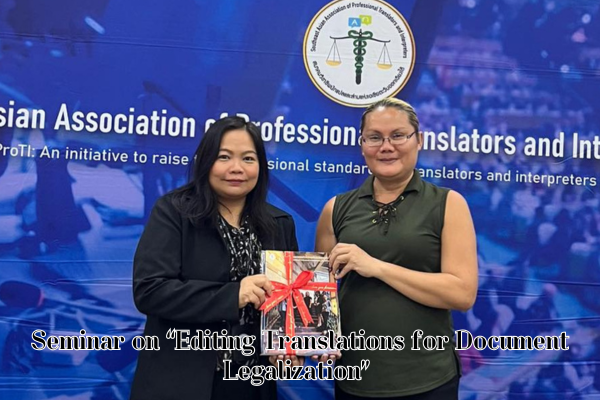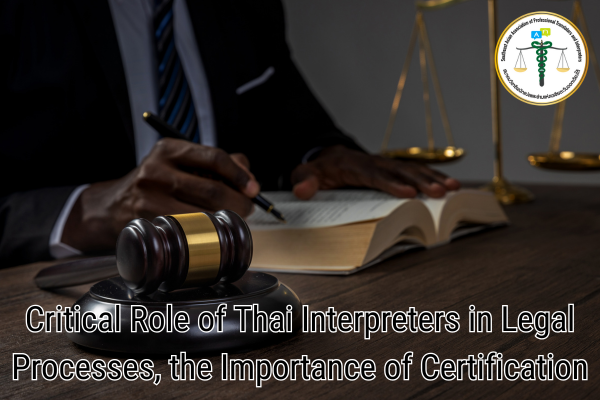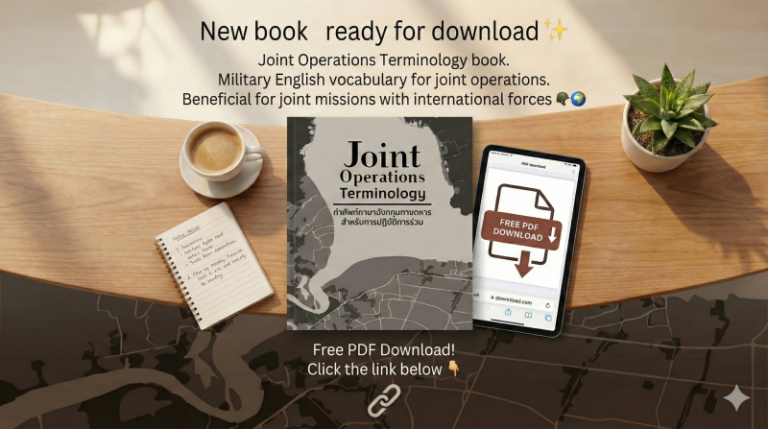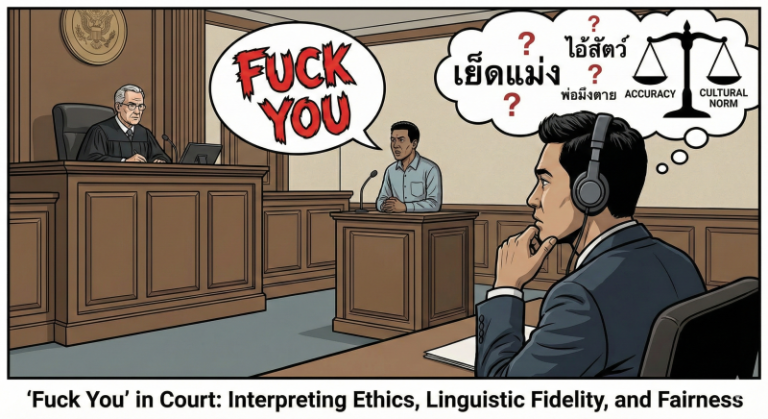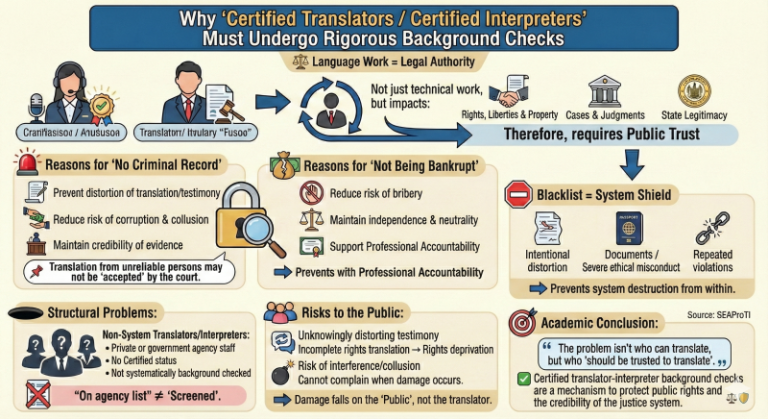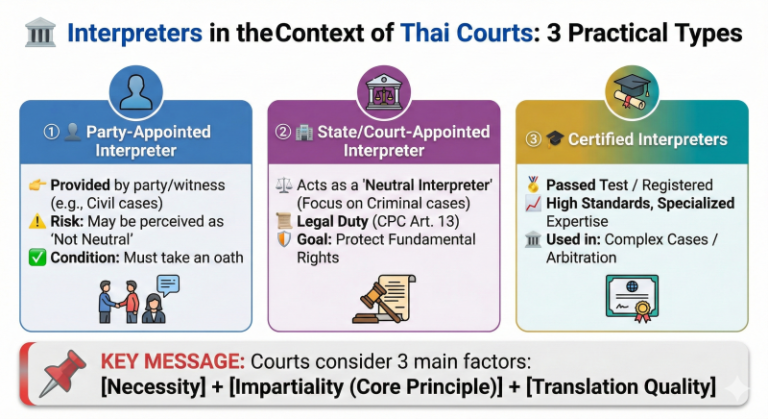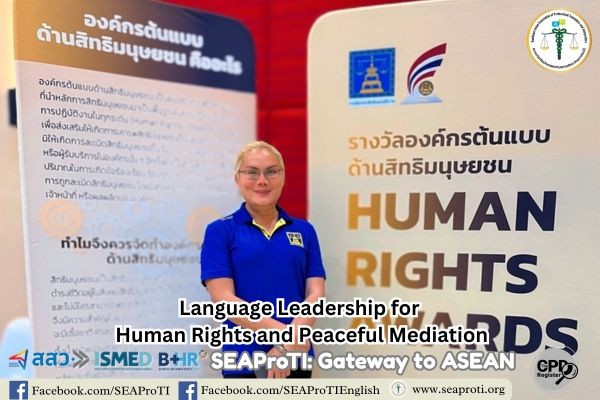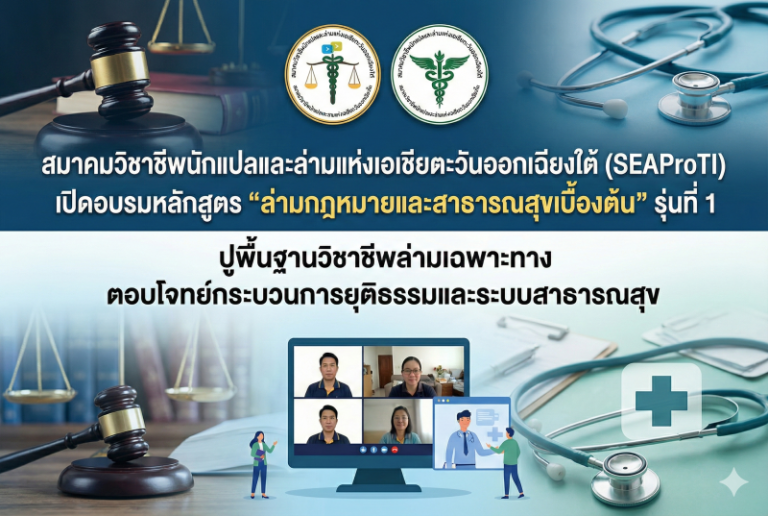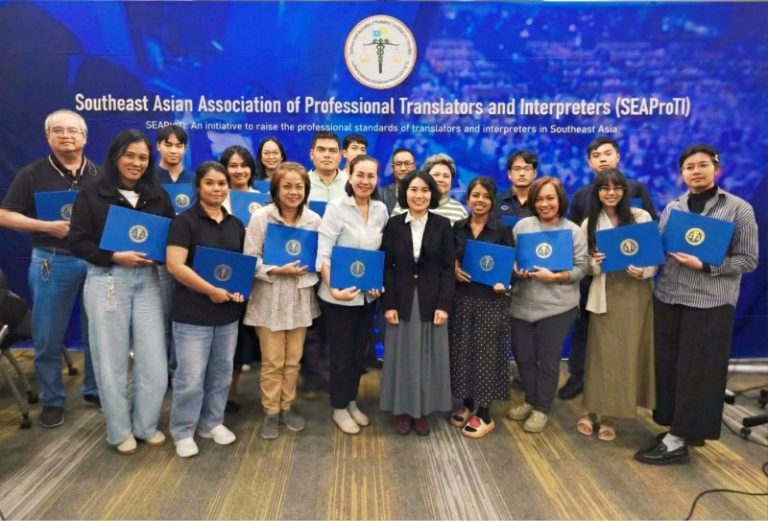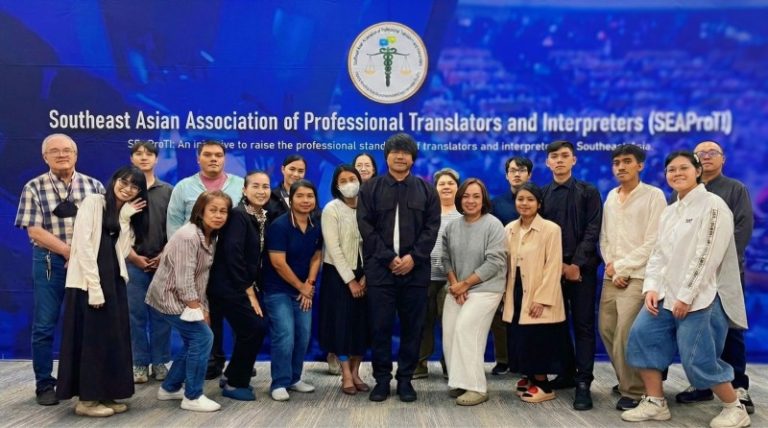Offensive Words to Beware of:
A Forensic Linguistic and Legal Analysis from Thai Supreme Court Judgments
Author: Wanitcha Sumanat, the President, Southeast Asian Association of Professional Translators and Interpreters
Email: wanitchas@seaproti.com
Abstract
This article examines offensive words appearing in Thai Supreme Court judgments that have been ruled to constitute defamation or insult under Sections 326–333 of the Thai Penal Code. The study applies forensic linguistic analysis to explore the speaker’s intent, cultural connotations, and social impact. Findings reveal that such expressions often dehumanize the target, undermining their value and dignity as a human being. These words are frequently linked to issues of gender, dignity, and social status, serving as verbal tools for asserting dominance or reinforcing the speaker’s own identity by degrading the honor of others.
Keywords: defamation, offensive language, semantic derogation, dehumanization, linguistic aggression
Introduction
In Thai society, offensive language is not merely a means to express anger or dissatisfaction. It is also a linguistic phenomenon reflecting structures of power, beliefs, culture, and societal values (Lakoff, 1989). Such words often carry complex semantic nuances and semiotic power that can construct or dismantle a person’s social status.
When used in public or in the presence of a third party, these expressions may constitute the criminal offenses of defamation or insult under Sections 326 and 393 of the Thai Penal Code (Royal Thai Government Gazette, 2007). Courts assess not only the literal meaning but also the socio-cultural context, the relationship between the parties, and the speaker’s illocutionary intent.
Understanding offensive language in a legal context is crucial for both forensic linguistics and the justice process. It helps clarify the criteria courts use to distinguish between generally harsh language and language that gravely undermines honor and dignity to the point of constituting a criminal offense.
Relevant Legal Framework
- Section 326 – Defamation: Making a false statement to a third party likely to damage the other person’s reputation, subject them to hatred, or cause contempt.
- Section 393 – Insult: Insulting another person in their presence through words or contemptuous acts.
- Section 328 – Defamation by Publication: Committing defamation via media or other forms of dissemination.
Examples of Offensive Expressions and Related Supreme Court Judgments
| Expression | Supreme Court Judgment | Reason for Ruling |
|---|---|---|
| ii dok thong, ii roi khui | 1442/1952 | Gender-based insult, degrading sexual dignity and public honor |
| ii sao kon chae | 1348/1976 | Vulgar sexual metaphor, causing dishonor |
| ii dok | 2102/1978 | Reduces sexual value, gender-disparaging |
| ii sat, ii khwai | 5257/2005 | Animal comparison, dehumanizing, implying stupidity |
| to lae | 8919/2009 | Accuses of dishonesty, damages credibility |
| ai hia | 6629/2013 | Highly offensive profanity, expresses extreme contempt |
| ii na hee, ii na hua khui, ii ka-ree | 19384/2014 | Severe sexual insults, degrading and defamatory toward women |
Forensic Linguistic Analysis
Meaning and Context
- Emphasizing sexual behavior in a negative manner
- Comparing animals to strip away human dignity
- Using strong profanity to attack status and honor directly
Speaker’s Intent
- Asserting dominance
- Causing public humiliation
- Demonstrating rejection or lack of respect
- Releasing anger, even if claimed to be in the heat of the moment
Court Interpretation
- Circumstances and context of the utterance
- Whether a third party was present (key in defamation cases)
- Cultural meaning, often tied to sexual and moral implications in Thai society
Social Impact
- Fuels social division
- Normalizes verbal violence
- Increases legal risks, especially in the digital age
- Reinforces gender discrimination
- Erodes public trust in constructive dialogue
Conclusion
The offensive language documented in Thai Supreme Court judgments demonstrates that words can serve as verbal weapons that dismantle human dignity and honor. Recognizing the linguistic intent and legal implications is essential for fostering mindful and responsible communication. This awareness helps prevent disputes and promotes a culture of respectful dialogue.
About Certified Translators, Translation Certification Providers, and Certified Interpreters of SEAProTI
The Southeast Asian Association of Professional Translators and Interpreters (SEAProTI) has published the criteria and qualifications for registering as “Certified Translators,” “Translation Certification Providers,” and “Certified Interpreters” of the Association under Sections 9 and 10 of the Royal Gazette, Secretariat of the Cabinet, Prime Minister’s Office, Kingdom of Thailand, dated 25 July 2024, Vol. 141, Part 66 Ng, p. 100. Full text available at: The Royal Thai Government Gazette
SEAProTI is the first professional association in Thailand and Southeast Asia with a formal certification system for Certified Translators, Translation Certification Providers, and Certified Interpreters.
Head Office: Baan Ratchakhru Building, No. 33, Room 402, Soi Phahonyothin 5, Phahonyothin Road, Phaya Thai Subdistrict, Phaya Thai District, Bangkok 10400, Thailand. Email: hello@seaproti.com
Tel: (+66) 2-114-3128 (Office hours: Mon–Fri, 9:00–17:00)
คำด่าที่ต้องระวัง: การวิเคราะห์เชิงนิติภาษาศาสตร์และกฎหมายจากคำพิพากษาศาลฎีกาไทย
ผู้แต่ง วณิชชา สุมานัส นายกสมาคมวิชาชีพนักแปลและล่ามแห่งเอเชียตะวันออกเฉียงใต้
Email: wanitchas@seaproti.com
บทคัดย่อ
บทความนี้วิเคราะห์คำพูดที่เป็นถ้อยคำหยาบคายซึ่งปรากฏในคำพิพากษาศาลฎีกาไทย และถูกตัดสินว่าเป็นความผิดฐานหมิ่นประมาทหรือดูหมิ่น ตามประมวลกฎหมายอาญา มาตรา 326–333 โดยใช้การวิเคราะห์ทางนิติภาษาศาสตร์ (Forensic Linguistics) เพื่อตรวจสอบเจตนาของผู้พูด ความหมายแฝงทางวัฒนธรรม และผลกระทบต่อสังคม การศึกษาพบว่าถ้อยคำเหล่านี้มักใช้ลดทอนความเป็นมนุษย์ของบุคคลที่ถูกกล่าวถึง ทำให้คุณค่าความเป็นคนและศักดิ์ศรีของเขาลดลง คำเหล่านี้มักเกี่ยวพันกับประเด็นเรื่องเพศ ศักดิ์ศรี และสถานะทางสังคม ใช้เป็นเครื่องมือทางวาจาเพื่อยืนยันอำนาจเหนือผู้อื่นหรือสร้างตัวตนของผู้พูดด้วยการบ่อนทำลายเกียรติยศของผู้อื่น
คำสำคัญ: หมิ่นประมาท, ถ้อยคำหยาบคาย, การลดคุณค่าทางความหมาย, การทำให้ไร้ความเป็นมนุษย์, ความรุนแรงทางภาษา
บทนำ
ในสังคมไทย คำพูดหยาบคายไม่ได้เป็นเพียงเครื่องมือแสดงความโกรธหรือความไม่พอใจเท่านั้น แต่ยังเป็นปรากฏการณ์ทางภาษาที่สะท้อนโครงสร้างอำนาจ ความเชื่อ วัฒนธรรม และค่านิยมของสังคม (Lakoff, 1989) คำสบถและคำด่ามักมีนัยทางภาษาที่ซับซ้อนและมีพลังเชิงสัญญะ (semiotic power) ที่สามารถสร้างหรือทำลายสถานะทางสังคมของบุคคล
เมื่อนำคำเหล่านี้มาใช้ต่อสาธารณะหรือสื่อสารให้บุคคลที่สามรับรู้ ก็อาจเข้าข่ายเป็นความผิดอาญาฐานหมิ่นประมาทหรือดูหมิ่น ตามมาตรา 326 และ 393 ของประมวลกฎหมายอาญา (ราชกิจจานุเบกษา, 2550) การพิจารณาว่าคำพูดหนึ่ง ๆ เป็นความผิดหรือไม่นั้น ศาลต้องพิจารณาไม่เพียงความหมายตรงของคำ แต่รวมถึงบริบททางสังคม-วัฒนธรรม ความสัมพันธ์ระหว่างคู่กรณี และเจตนาของผู้พูดในทางวัจนปฏิบัติ (Lakoff, 1989; ราชกิจจานุเบกษา, 2550)
การศึกษาเรื่องคำหยาบคายในบริบททางกฎหมาย จึงมีความสำคัญต่อการทำความเข้าใจทั้งกระบวนการนิติภาษาศาสตร์และกระบวนการยุติธรรม เพราะช่วยอธิบายเกณฑ์ที่ศาลใช้แยกแยะระหว่างภาษาที่รุนแรงทั่วไปกับภาษาที่ทำลายเกียรติยศและศักดิ์ศรีจนเป็นความผิดทางอาญา อีกทั้งยังเปิดเผยว่าภาษาทำงานเป็นเครื่องมือในการต่อรองอำนาจ การสร้างตัวตน และการกำหนดความสัมพันธ์ทางสังคมอย่างไร (Lakoff, 1989)
กรอบกฎหมาย
มาตรา 326 – หมิ่นประมาท: ใส่ความผู้อื่นต่อบุคคลที่สามในลักษณะที่น่าจะทำให้ผู้นั้นเสียชื่อเสียง ถูกเกลียดชัง หรือถูกดูหมิ่น
มาตรา 393 – ดูหมิ่น: ดูหมิ่นผู้อื่นต่อหน้าโดยใช้คำพูดหรือแสดงกิริยาที่เป็นการเหยียดหยาม
มาตรา 328 – หมิ่นประมาทโดยการโฆษณา: หมิ่นประมาทโดยการเผยแพร่ผ่านสื่อหรือวิธีอื่น ๆ
ตัวอย่างถ้อยคำและคำพิพากษาศาลฎีกาที่เกี่ยวข้อง
| ถ้อยคำ | คำพิพากษาศาลฎีกา | เหตุผลของคำพิพากษา |
|---|---|---|
| อีดอกทอง, อีร้อยควย – ด่าผู้หญิงว่ามีความประพฤติทางเพศเสื่อมเสีย | 1442/2495 | ลดทอนศักดิ์ศรีและคุณค่าทางเพศ ทำให้เสียเกียรติและอับอายต่อสาธารณะ |
| อีสาวก้นแฉะ – อุปมาเชิงทางเพศหยาบคาย | 1348/2519 | ทำให้เสียเกียรติและอับอายต่อสาธารณะ |
| อีดอก – คำด่าผู้หญิงในเชิงดูหมิ่นทางเพศ | 2102/2521 | ลดคุณค่าทางเพศของผู้ถูกด่า มีนัยเหยียดเพศ |
| อีสัตว์, อีควาย – เปรียบผู้หญิงเป็นสัตว์หรือควาย (โง่) | 5257/2548 | ลดทอนความเป็นมนุษย์ เปรียบเทียบให้ไร้ค่า |
| ตอแหล – กล่าวหาว่าไม่จริงใจ หลอกลวง | 8919/2552 | ทำลายความน่าเชื่อถือและความไว้วางใจ |
| ไอ้เหี้ย – ด่าผู้ชายเปรียบกับสัตว์ที่สังคมถือว่าต่ำทราม | 6629/2556 | เป็นคำหยาบรุนแรงมากในวัฒนธรรมไทย แสดงความดูหมิ่นรุนแรง |
| อีหน้าหี, อีหน้าหัวควย, อีกะหรี่ – ด่าผู้หญิงด้วยภาพทางเพศหยาบคายสุดขีด | 19384/2557 | เหยียดเพศรุนแรง ทำลายเกียรติและชื่อเสียงอย่างมาก |
การวิเคราะห์ทางนิติภาษาศาสตร์
ความหมายและบริบททางภาษา
ถ้อยคำเหล่านี้มีลักษณะ การลดคุณค่าทางความหมาย (semantic derogation) เช่น
- เน้นพฤติกรรมทางเพศในเชิงเสื่อมเสีย
- เปรียบเทียบกับสัตว์เพื่อลดทอนความเป็นมนุษย์
- ใช้คำหยาบรุนแรงโจมตีศักดิ์ศรีโดยตรง
เจตนาของผู้พูด
โดยทั่วไปคำเหล่านี้แฝงเจตนา เช่น
- แสดงอำนาจเหนือผู้อื่น
- ทำให้อับอายต่อสาธารณะ
- แสดงการตัดขาดหรือไม่ให้เกียรติ
- ระบายความโกรธ แม้จะอ้างว่าเป็น “อารมณ์ชั่ววูบ”
การตีความในบริบทพยานหลักฐาน
ศาลจะพิจารณา:
- สถานการณ์และบริบทการใช้คำ
- การมีบุคคลที่สามรับรู้หรือไม่ (สำคัญในคดีหมิ่นประมาท)
- ความหมายในวัฒนธรรมไทย ซึ่งมักมีนัยทางเพศและศีลธรรมสูง
ผลกระทบต่อสังคม
- สร้างความแตกแยกในสังคม
- ทำให้การใช้ความรุนแรงทางภาษากลายเป็นเรื่องปกติ
- เพิ่มความเสี่ยงทางกฎหมายในยุคดิจิทัล
- ตอกย้ำการเลือกปฏิบัติทางเพศ
- บ่อนทำลายความเชื่อมั่นในบทสนทนาเชิงสร้างสรรค์
สรุป
คำหยาบคายในคำพิพากษาศาลฎีกาเป็นตัวอย่างชัดเจนว่าภาษาสามารถใช้เป็นอาวุธทางวาจาที่ทำลายศักดิ์ศรีและเกียรติของผู้อื่นได้จริง การตระหนักถึงเจตนาทางภาษาศาสตร์และผลทางกฎหมาย จะช่วยให้สังคมเข้าใจผลกระทบของคำพูดเหล่านี้มากขึ้น และหลีกเลี่ยงการสื่อสารที่อาจก่อให้เกิดข้อพิพาทหรือทำร้ายผู้อื่น ทั้งยังเป็นการส่งเสริมวัฒนธรรมการสื่อสารอย่างมีสติและเคารพกัน
เกี่ยวกับนักแปลรับรอง ผู้รับรองการแปล และล่ามรับรองของสมาคมวิชาชีพนักแปลและล่ามแห่งเอเชียตะวันออกเฉียงใต้
สมาคมวิชาชีพนักแปลและล่ามแห่งเอเชียตะวันออกเฉียงใต้ (SEAProTI) ได้ประกาศหลักเกณฑ์และคุณสมบัติผู้ที่ขึ้นทะเบียนเป็น “นักแปลรับรอง (Certified Translators) และผู้รับรองการแปล (Translation Certification Providers) และล่ามรับรอง (Certified Interpreters)” ของสมาคม หมวดที่ 9 และหมวดที่ 10 ในราชกิจจานุเบกษา ของสำนักเลขาธิการคณะรัฐมนตรี ในสำนักนายกรัฐมนตรี แห่งราชอาณาจักรไทย ลงวันที่ 25 ก.ค. 2567 เล่มที่ 141 ตอนที่ 66 ง หน้า 100 อ่านฉบับเต็มได้ที่: นักแปลรับรอง ผู้รับรองการแปล และล่ามรับรอง
*สมาคมวิชาชีพนักแปลและล่ามแห่งเอเชียตะวันออกเฉียงใต้ เป็นสมาคมวิชาชีพแห่งแรกในประเทศไทยและภูมิภาคเอเชียตะวันออกเฉียงใต้ที่มีระบบรับรองนักแปลรับรอง ผู้รับรองการแปล และล่ามรับรอง
สำนักงานใหญ่: อาคารบ้านราชครู เลขที่ 33 ห้อง 402 ซอยพหลโยธิน 5 ถนนพหลโยธิน แขวงพญาไท เขตพญาไท กรุงเทพมหานคร 10400 อีเมล: hello@seaproti.com โทรศัพท์: (+66) 2-114-3128 (เวลาทำการ: วันจันทร์–วันศุกร์ เวลา 9.00–17.00 น.)


